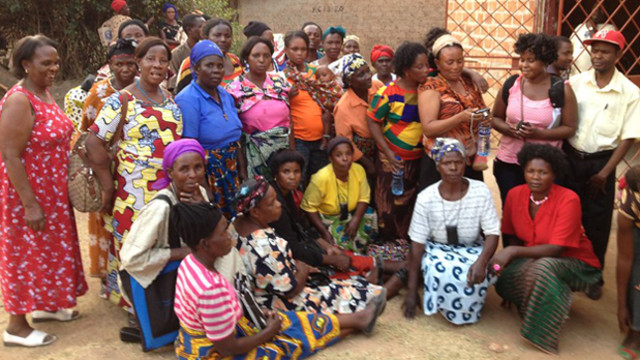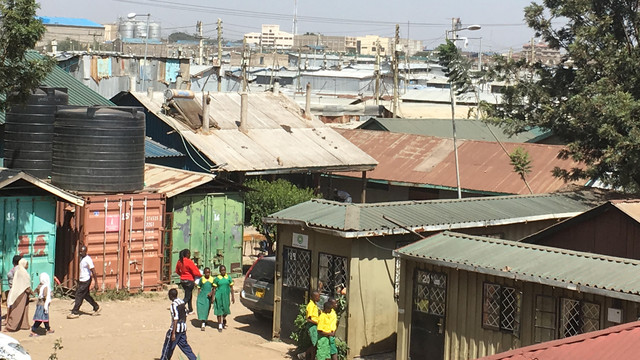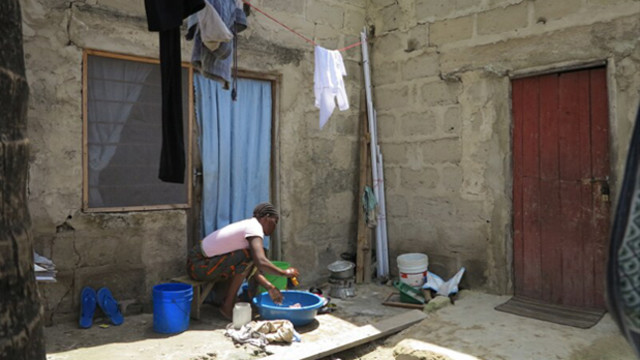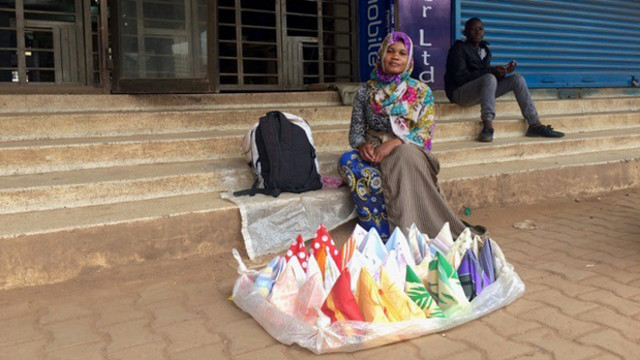Introduction to urban health equity: addressing risks, promoting gender equality and fostering wellbeing in informal settings
In close partnership with grassroots organisations, IIED seeks holistic, co-produced solutions and enhanced data collection on urban health risks to promote health equity for residents of informal settlements and informal workers.

An informal settlement built alongside the polluted Nairobi River. In the foreground, rubbish is being burned at an informal dump site (Photo: Kristina Rosinsky/The Advocacy Project via Flickr, CC BY-ND 2.0)
With low-quality housing, deficient infrastructure, food insecurity and precarious livelihoods, people living and working in informal settings face multiple health risks. And these challenges are amplified by both COVID-19 and climate change.
Globally, there are two billion informal labourers, while informal settlements provide hazardous, low-quality shelter to more than one billion people and host vibrant informal economies.
Inadequate housing and infrastructure typically impose gender-inequitable burdens, and women with precarious informal livelihoods often face acute risks to their health and wellbeing.
Our health research is rooted in a multifaceted understanding of the wellbeing risks and exclusions in urban areas. Exploring how low-income residents have worse health outcomes than their wealthier neighbours, we aim to understand the social, environmental and political determinants of health in urban areas.
Working closely with grassroots organisations and municipal, national and international decision makers, we aim to generate integrated, cross-cutting solutions that address the complex health risks facing low-income urban residents and workers.
We also seek to co-create and analyse community-led data (generated by residents in informal settlements) to enhance understanding of often-neglected health concerns. This work builds on the longstanding experience of IIED's Human Settlements research group.
Related work has explored urban food insecurity: we have highlighted the role of informal food vendors in supporting access to affordable foods in Nairobi’s informal settlements, as well as analysing how low-income consumers define and measure food insecurity in Asian cities.
What IIED has done
Over 30 years, we have generated a range of rigorous publications, policy-relevant outputs, and grassroots partnerships to advance health equity in urban areas.
From researching health in informal settlements in India, Argentina and Sudan in the 1980s, we went on to generate seminal books on urban health – including 'The poor die young: housing and health in third world cities' and 'The environment for children: understanding and acting on the environmental hazards that threaten children and their parents' – and worked closely with the World Health Organization to promote greater attention to urban health issues in the 1990s.
More recently, we have generated several key journal articles on urban health equity and health in informal settlements, including in Environment and Urbanization, The Lancet, the Journal of Urban Health and the International Journal of Environmental Research and Public Health.
IIED's Alice Sverdlik and Ranga Machemedze of the Training and Resource Support Centre in Zimbabwe provide an insight into work on urban health equity
Working with partners
Our well-established partnerships in the global South include Slum Dwellers International (SDI), the Asian Coalition for Housing Rights (ACHR) and Women in Informal Employment: Globalizing and Organizing (WIEGO).
As part of the Urban ARK project, we helped analyse the full spectrum of risks in African cities, from everyday risks linked to poor infrastructure or services to small- and large-scale disasters.
With SDI and ACHR, we analysed many community-led innovations and sought to enhance policy recognition for grassroots data collection, advocacy and inclusive interventions that can foster health and wellbeing. With WIEGO, we analysed the health, gender and livelihood impacts of informal workers’ inadequate access to water, sanitation, and hygiene in Durban and Nakuru (PDF).
What is IIED doing now?
From unsafe workplaces to low or erratic earnings and exposure to hazardous substances, informal workers face a wide range of wellbeing concerns, which will only increase with climate change.
Past studies of occupational health and climate change have often overlooked informal labourers. To promote health and informal livelihoods, we are working with grassroots partners in India and Zimbabwe to explore informal workers’ occupational, environmental, and climate-change related health risks and how to foster resilience in the face such complex challenges.
With COVID-19 a key cross-cutting concern in urban areas, we convened an array of stakeholders to explore how to foster a transformative urban recovery with a focus on informal workers, residents of informal settlements, displaced populations and other vulnerable groups.
We are also working to generate equitable, far-sighted strategies that can address multiple risks and greater recognition for community-led processes.
This includes highlighting the pivotal importance of informal settlement upgrading and its potential to foster health, climate resilience, and wellbeing in informal settlements, which may help to address COVID-19 and any future pandemics in urban areas.
IIED is also part of the AIR (Action for Interdisciplinary Air Pollution Research) Network working to create innovative, participatory solutions to air pollution and its effects on human health in informal settlements in Kenya.
Recently, we published a chapter on ‘Public health and sustainable urban futures’ in UN-Habitat’s flagship World Cities Report 2022. The chapter explores multifaceted strategies that can promote health equity, foster resilience to climate change, and tackle overlapping sources of disadvantage in urban areas.
Contact
Anna Walnycki (anna.walnycki@iied.org), senior researcher, IIED's Human Settlements research group



